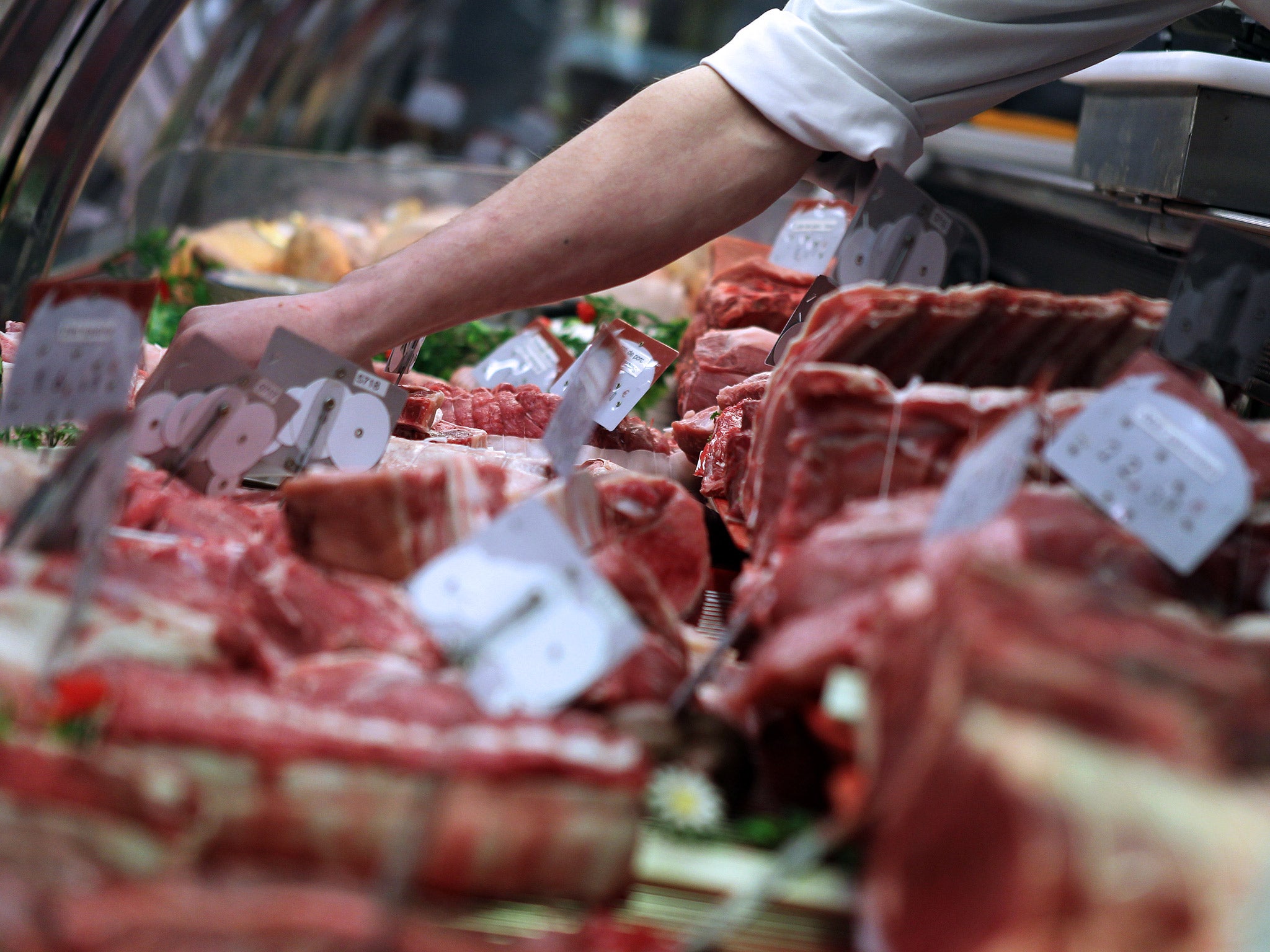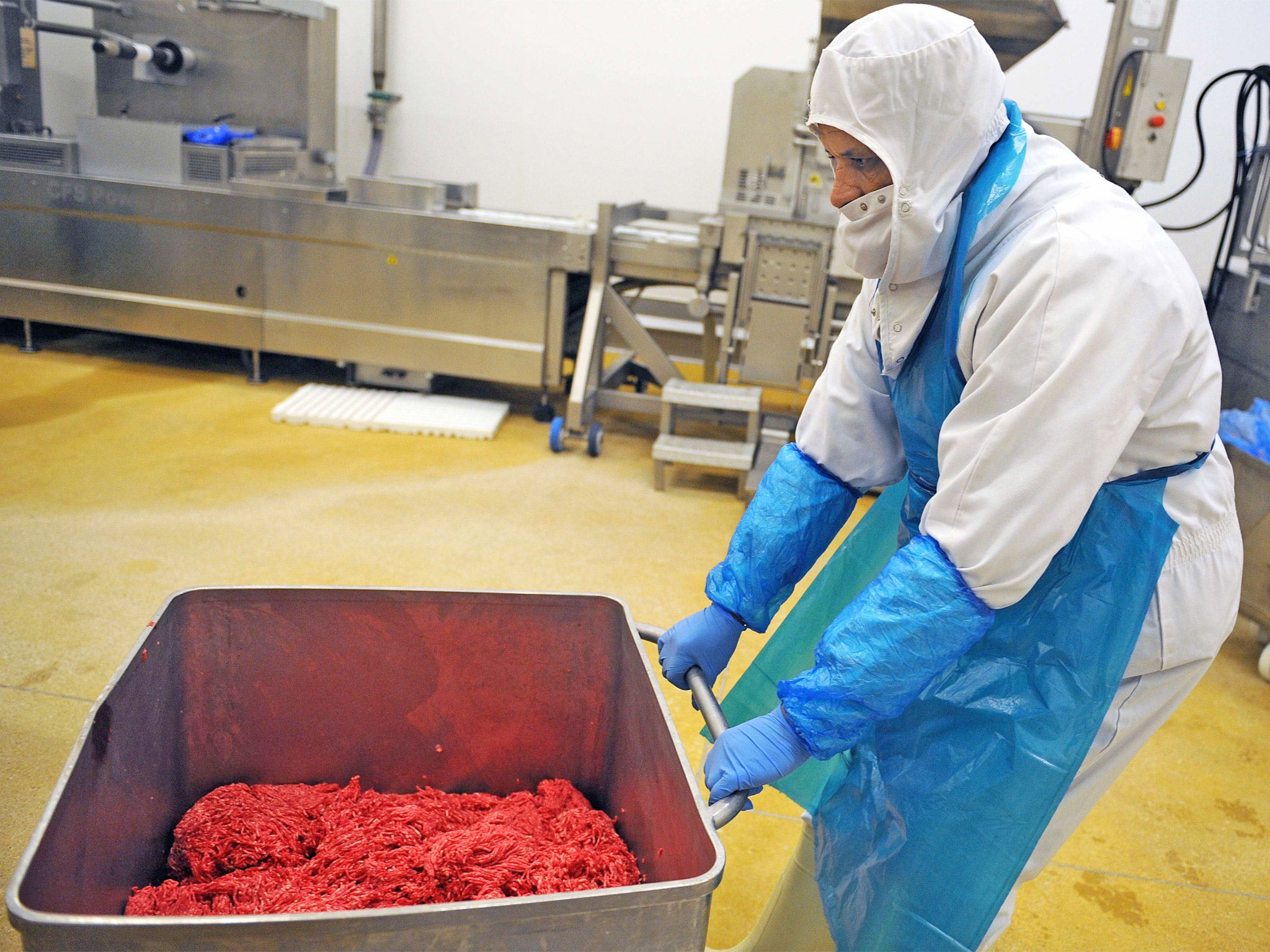Capita and the great British food safety sell-off
Sale of a key research unit could undermine work on food safety, says expert

The sale of a key government research unit to the outsourcing giant Capita could undermine essential work on food safety and lead to commercial concerns being put before the public interest, a leading expert has warned.
Professor Tim Lang, a Westminster adviser, told The Independent that the Food and Environment Research Agency (Fera), which led the way in identifying horsemeat in the UK food chain, is now doomed to failure. The global contractor has already outlined plans to almost double sales by making the unit’s work more commercial.
Fera’s research includes analysing diseases and chemical risks in the food-supply chain, as well as looking at the effects of pesticides, tree diseases and invasive species. But Professor Lang warns that once the agency is privatised, it will be under pressure to ignore low-paying projects vital to public safety and the environment in favour of more lucrative research. The academic frequently advises the Government and the World Health Organisation on food safety issues.
“No one will pay for evidence about food and biodiversity, or food and pesticide residues,” he warned.

“There’s no profit in that. In fact, there’s more profit in not having it. There’s an absolute incentive not to have public-interest research about these areas. And that’s a concern.” He added: “Government needs to have optimum advice at its fingertips… Climate change, pesticides – all sorts of things that politicians ought to have good advice on are wrapped up in the daily bread and butter of Fera. And the Government privatising that basically gets rid of that.”
Capita formally takes over the agency next Wednesday. But Professor Lang, who heads City University London’s food policy unit, said: “I think it’s absolutely scandalous. This is selling the state, and the moment a state loses its access to science it’s in trouble.”
He claimed many food policy experts shared his view but were unwilling to speak out about their concerns.
Fera employs about 400 scientists in York and a further 50 jobs will be created in the city as a result of the deal. The group made a profit of £1.6m last year as a government entity, on sales of about £40m. Capita wants to increase the unit’s annual sales to “at least” £700m over the next decade, or £70m a year.
Labour has urged caution over the deal. The shadow Environment Secretary, Maria Eagle, said the Government has not satisfied her concerns about Capita’s acquisition of the agency.

“I have some concerns about the deal and I have not been able to get much information out of the Government. Clearly the concern is that commercial considerations will skew Fera’s priorities,” she said.
The deal will result in Capita paying £20m for a 75 per cent stake in Fera; further investment will be made during the following five years. Capita is teaming up with Newcastle University for the venture, which it says will “unlock £14.5m of funding”.
Concerns have also been raised about a potential conflict of interest between Fera’s work and other Capita clients, which are thought to include the retailers Sainsbury’s and John Lewis.
“Growth will be generated through existing agreements with the public sector… and by further developing services to achieve greater penetration of the commercial market,” Capita said when it announced the deal.
The group insisted yesterday that Fera, far from being damaged by the deal, would benefit once it separates from the Department for Environment, Food and Rural Affairs (Defra).
“Defra will continue to play a role in Fera’s operation and governance, and the government will continue to be an important client for Fera. More importantly, Capita believes that good science is good business… Capita’s investment will protect the excellent and valuable ‘science for public good’ work which is a distinctive part of Fera’s mission,” he said.

A spokesman for Fera said Defra would have two seats on the agency’s board so that it can ensure that the interests of the public and the government are represented.
The Government has committed to contribute at least £50m to the unit over the next five years. “Scientific research will not be swayed by commercial interests,” he said. But despite assurances that the integrity of Fera will be protected, many in the industry remain concerned.
Professor Chris Elliott, the food expert who led the Government’s inquiry into the horsemeat scandal, said Fera scientists are relieved that the ownership issue has been settled after a long period of uncertainty, but he cautioned that considerable uncertainty remains.
“I doubt if they yet know the direction of travel planned for the organisation. I very much hope we can all get an idea of this sooner rather than later,” he said.
The Fera takeover comes as the National Audit Office investigates a contract between the Cabinet Office and Capita to provide civil service learning and development training, after a group of small businesses claimed the outsourcer had exploited its dominant position at the expense of the suppliers it works with. Capita said it was supporting the NAO contract review.
Explainer: What the agency does
The Food and Environment Research Agency’s (Fera) wide-ranging remit includes a crucial role in protecting the integrity of the UK’s food chain. It played a key role in the horsemeat scandal and celebrated its 100th anniversary last year – during which time it has established a global reputation for food science expertise.
But its remit is far wider than food. It also researches plants, animals and the environment at large, focusing on areas such as bee health, ash dieback, invasive species, genetically modified crops and biosecurity.
It provides diagnostic and forensic support to, among others, the Plant Health and Seeds Inspectorate, the Genetic Modification Inspectorate and the National Bee Unit. Fera completes more than 600 research projects a year, involving the analysis of 50,000 plant and food samples.
Join our commenting forum
Join thought-provoking conversations, follow other Independent readers and see their replies
Comments
Bookmark popover
Removed from bookmarks